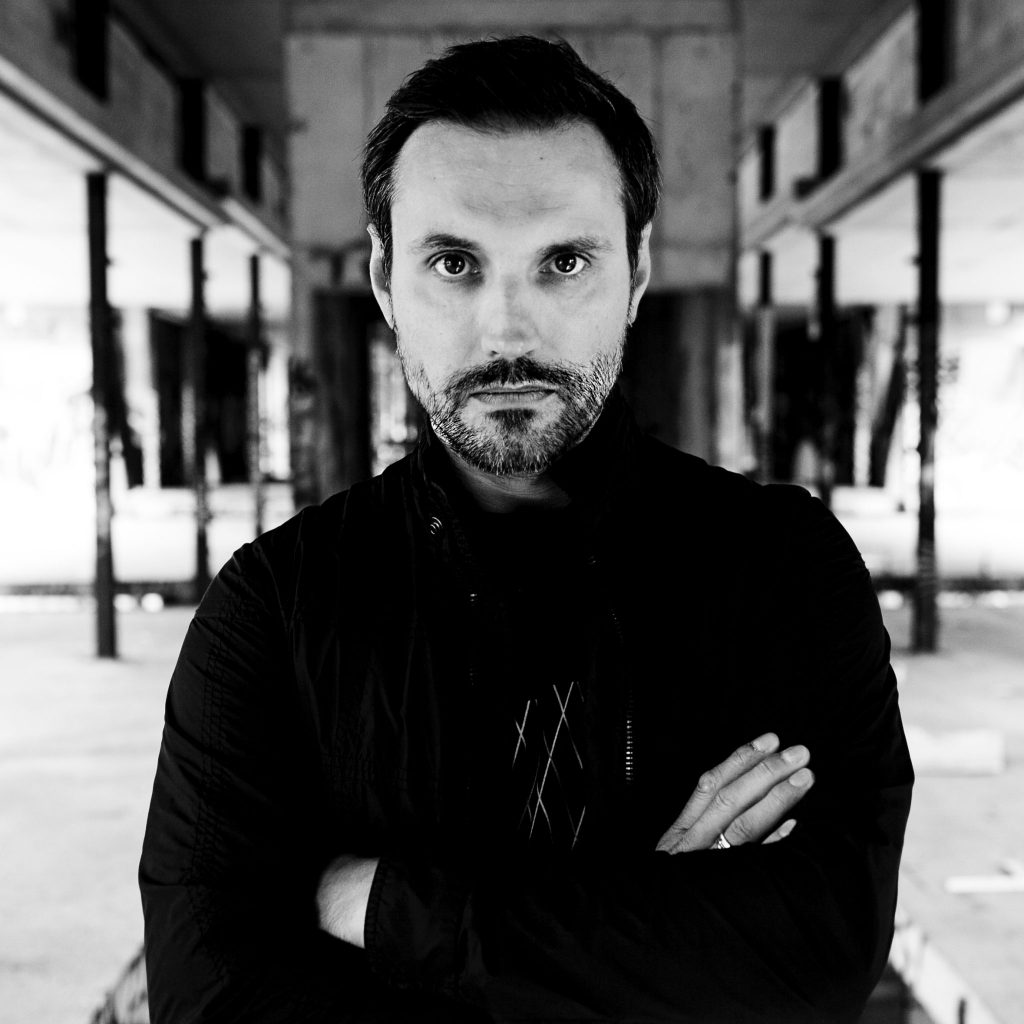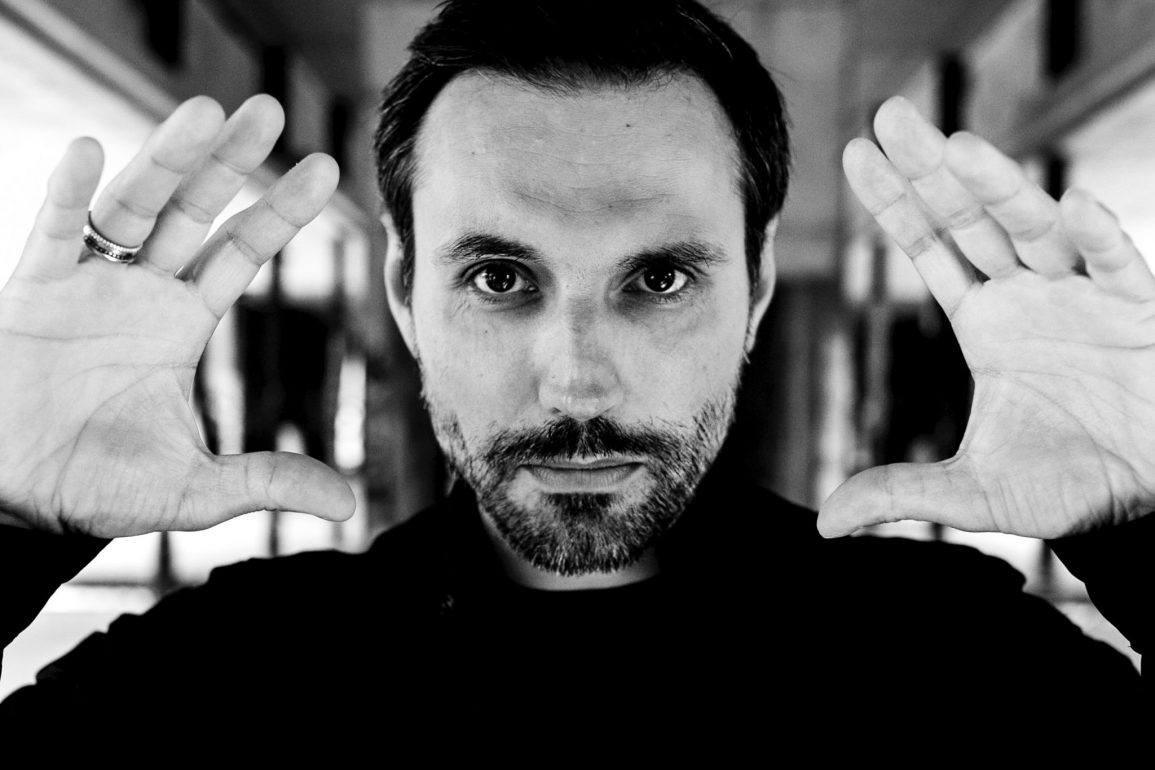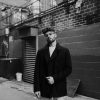Interview by Maya-Rose Torrao
“Creating music is an ecstatic and deeply emotional moment.”
Warsaw’s analog techno maverick Jurek Przeździecki AKA Epi Centrum is one of the more powerful and uncompromising voices in former Eastern Bloc electronic music scene. Przeździecki has been producing music for over two decades and, over the years, has received consistent support from a host of acclaimed DJ/producer heavyweights including Laurent Garnier, Oliver Ho, Joey Beltram and DJ Hell, while Depeche Mode‘s Martin Gore included Przeździecki‘s track in the band’s tour DJ set.
Przeździecki’s has announced a brand new LP for his Epi Centrum project, ’Excrescence’, which is slated for release on Damon Wild‘s seminal label, Synewave Records, on 7th December. The forthcoming LP mixes old and new, tapping into elements of Detroit retrofuturism and heavy-duty pounding mania with ghostly echoes of 90s post-industrial techno sounds.
We are glad to share a taste of Epi Centrum’s ‘Excrescence’ album today in the form of a premiere of his track ‘Abstract Concept Called Impact’, an exceptionally unique piece of subtle acid techno that relies on abstraction and improvisation to draw listeners in, hypnotising them with steadily churning beats and melodies.
Listen to Epi Centrum’s brand new track, ‘Abstract Concept Called Impact’, taken from his upcoming album, below.
We caught up with Epi Centrum and chatted about improvisation, analog hardware and his upcoming album.
Hi Epi Centrum! Before we jump in – set the tone for us. Why the arts?
It is difficult to provide a clear answer to this question. I come from a family with an artistic background. My great-grandfather was a very well-known Polish painter, and my grandmother was a designer. At home, I was surrounded by paintings, drawings and literature about arts. As I child, I could always reach for paint brushes and play a “little artist” under the watchful eye of my grandma. These beginnings have hatched a certain type of sensuality in me, and have triggered my interest in art. Then, the years of getting ever deeper into the passion for painting came. All that has resulted in my decision to study arts.
Which usually comes first when you’re producing – the sound or the idea?
Usually, it is the sound that appears first. The entire concept of the composition is unveiled by improvisation. There are times when I come to the studio with a clear idea in my mind, but I know from experience that such an approach restricts me and makes it difficult to come up with an element of surprise. It also happens that something appears completely out of the blue, by chance. It may be the sound of feedback between a speaker and a microphone that was placed too close. The crucial thing is that something must provoke the feeling of musical excitement, must stimulate the entire process that leads to a finished piece.
You grew up with classical music training – how has this has affected your approach to making electronic music?
Playing the piano or learning the art of composition is a great help in creating music, regardless of the style you are pursuing. The logic of harmony or voice leading does not have to be used, but may be very helpful when creating your trademark ideas. Classical composition is a very complex area, so transferring those solutions into the world of techno makes no sense, but I like to keep my head open to the out-of-the-box way of thinking. A couple years ago I published a piece in which elements from Frederic Chopin’s nocturne were used and quoted. On another occasion, I devoted a musical hour to Morton Feldman, creating an electronic accompaniment theme.
What’s on your current playlist?
Stanislav Tolkachev – ‘February’
Xhin – ‘Time Spiral’
Planetary Assault Systems – ‘Random Kingdom’
Randomer/Hodge – ‘If I Could Stop’
Forward Strategy Group – ‘Duchess’
Rodhad – ‘Vivarium (Porter Ricks Remix)’
You’ve been known to push the boundaries of the Techno genre – what techniques do you experiment with to get your original sound?
When I work on a particular piece, my artistic self-complacency is a priority. That’s what I’m aiming for at any price, with no concessions. I am not afraid of surprising myself by mixing various styles. I believe in the first, strong impression that a sound, a melody or a percussion line makes on me. If the original idea or a sound played by accident has that immediate effect – I save it. Creating music is an ecstatic and deeply emotional moment. The entire process is based on improvisation. Relying on numerous sound sources (synthesizers, sequencers, percussion instruments, samplers, etc.), I simultaneously create entire sequences and single musical events. Once I have the “musical arsenal” ready, I press the record button and start improvising. The improvisation is “hosted” by a 32-track mixer on which a preliminary composition is created by means of “musical gestures”. These gestures involve adding musical passages, moving slides, modulating tone with knobs and engaging effect loops. The entire process lasts 30-45 minutes and is not interrupted. I select 5-7 minutes of material recorded that way, and hone it to achieve the final form.
You’ve got a really exciting LP coming out on the seminal Synewave Label, ‘Excrescence’ – congrats! Tell us more about the process of putting the album together.
Thank you. The album was created between 2016 and 2018. Initially, I was working on 11 tracks, but have finally decided to choose 8 of them. These titles are observations of the world around me. They offer a commentary to the relationships between people, to the illusions we live in and to the emotional emptiness. I have tried to express all that by means of the very dramatic form of the pieces. It is by no means the “committed” type of music, although that’s what I have been brought up with. While working on something, the distance to music that was created, let’s say, several months earlier, is gradually lost. An album is a personal story – it needs to be interesting, and it needs to be true. I wanted to check if that is really the case, so I put the album away for six months.
I wanted to find out if that music is still up-to-date and if it is still capable of moving me. It has worked and I am glad that I have approached the issue that way. The support of Damon Wild himself has helped me a lot, as he gave me just as much time as I needed. In the meantime, he was testing various tracks in clubs, for instance in Berghain.
If you could choose one specific track from the LP that’s very special to you, which would you choose, and why?
That’s a very tricky question, because there is a separate story behind each and every one of those tracks. That’s what makes all of them very unique to me. Let me list two of them: ‘Abstract Concept Called Impact’ and ‘Limited Useful Life’. In the former, we have this melodic line, a very long, improvised motif played entirely by hand. That melody was recorded – from start to finish – in a single take, without any later quantization of modifications. I think that this lends a touch of magic and uniqueness to that particular piece. ‘Limited Useful Life’, in turn, took 30 minutes to create and was improvised on a very small, modular synthesizer. I cut 3 minutes out of that and put in on the album.
What do you keep close by while you’re making music?
Despite the fact that I spend more time walking around the studio rather than sitting, I always have a bottle of water handy. I don’t drink, don’t smoke, and try to avoid any distractions.
Was there a specific moment in your life where you thought, “this is what I want to do”?
I remember it very well, it was during my time at the Academy of Fine Arts. I already had my first musical experiences behind me.
I was recording fragments from cassettes onto reels, looping industrial mantras. Although they were not a finite form of music, they offered me a lot of valuable experience. With the huge amount of music I was listening to without end, the thought occurred to me that I wanted to be part of it as well! But not as a listener. As an author. I also met people who were creating music at that time, and we decided to work on our first project together. That’s how it all began.
What gets your creative juices flowing? What puts you in the mood to make music? Whether it be music by other artists, film, nature, art etc…
In many instances entering the studio and being around the equipment does the trick. Sometimes, it’s another artist’s music, but in a purely “inspirational” manner. I find “something” that unleashes an idea inside my head, or tells me how to approach a given piece. In my free time, I listen to contemporary music and to composers from the beginning of the century. I ask myself what it is that makes a given piece so interesting, so surprising, unobvious and original? Although that music is not electronic, drawing conclusions opens up my mind. Searching and trying is of crucial importance here. Even if nothing specific is ready after many hours of experimenting, I am richer having the musical knowledge and experience I acquired. Forcing yourself to create music makes no sense. Sometimes you need a rest. You have to spend some time away from the studio to reset your mind. Remember, that the bar needs to be moved a little bit higher every time.
Any emerging/unknown/upcoming artists on your radar?
I have less and less time to listen to music. I can only do it in my car. There are many interesting artists out there. In my opinion, it’s worth paying attention to Identified Patient with his EP titled ‘Weeshuis Der Verloren Zielen’. Be ready!
Let’s get technical for a moment! Take us through your collection of gear, tech or software that accompanies your creative expression.
My studio is located in an old Polish Radio building in Warsaw. The equipment I’m using has changed rather considerably over the years, but my working system still remains the same – I create through improvisation. I select the instruments with their improvisation-related capabilities in mind. They cannot have any hidden menus or options that hinder your quick reactions while recording in the studio or performing live. I have never been able to work with software – a physical contact with hardware is what I value the most. Large modular Buchla 200e and Easel systems are the heart of my studio. The sound of that instrument is truly unique and cannot be replicated in any other way. The majority of motifs and sequences used in the album were generated on that instrument. Macbeth Elements is another piece of hardware whose tone is similar to that of VCS Synthi, but has its own, unique character. Macbeth is controlled with the use of a very exotic, analog genoqs Octopus sequencer. It takes a complete shift in your attitude to work with that sequencer, but very organic melodies are a worthy reward. I have been working with Buchla for many years now, but the Eurorack modular system is relatively new for me.
I use it to create percussion and bass lines. The Iotine Core 3 processor by NIIO Analog is a very important piece of hardware as well. The tones found in ‘Forsaken Minds’ were created using that device. For mixing, I use the APB Dynasonics console for live performances. The console has many aux send terminals enabling me to loop and couple effects while recording. I use 4 compressors that work best for my purposes – API 2500, two Chandler Germanium and Elysia. The effects are the product of Eventide H8000FW, Timefactor and Space processors. Improvisations are recorded with the use of the Logic Pro X suite, which is also relied upon for further processing and mixing.
Any side projects you’re working on that you can tell us about?
I am currently recording with Andrzej Karałow, a classical piano player with whom we released the WIR album in 2018. That music combines two different worlds of piano and electronic improvisation. I also cooperate with Jerzy Mazzoll, a legend of avant-garde music, and our mini-album may be expected soon. I do hope that an album by Tumult Hands – a project I am working on with Jacek Sienkiewicz (Recognition) – will be revealed some time in 2019.
Break down the news for us: what can we expect from Epi Centrum in 2019?
I will keep doing what I love and will be sharing it with my audience during live gigs. I think the future is interesting because it is surprising.

Follow Epi Centrum: Facebook / Soundcloud / Instagram




